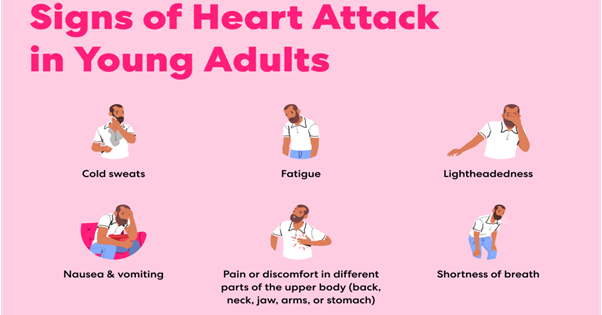Heart attacks, known scientifically as myocardial infarctions, have been long associated with Men in their late 50’s and Women in their late 60’s. In recent years, however, Indian doctors have seen several cases of heart attacks in younger individuals. “Heart attacks are seen at least one decade earlier among Indians compared to western populations.” What are the risk factors behind this concerning trend?
THE LATEST FIGURES.
In recent years, India has witnessed an upsurge of heart attacks among young adults and people in their 20s and 30s. According to a comprehensive medical study published in October 2023, heart attacks were the underlying cause of up to 45% of deaths in the 40-69 year age group.
As of today, 1 in 5 heart attack patients are younger than 40 years of age.
THE QUESTION IS WHY INDIA’S YOUNGER AND OVERALL HEALTHIER GENERATIONS ARE BECOMING SO VULNERABLE TO HEART ATTACKS?
A sedentary lifestyle and related health conditions like high blood pressure, obesity and diabetes are the leading culprit of heart attacks. But there seems to be some additional reasons which are not as readily intuitable.
The main risk factors for heart attack and heart diseases more generally include age, family history and lifestyle choices. As expected, among the factors dominating the behavioral category figure:
- Eating a diet high in saturated fats, Trans fat, and cholesterol,
- Not getting enough physical activity,
- Drinking too much alcohol, and
- Smoking or exposure to secondhand smoke.
WHAT’S NEW?
Modern diets filled with fast food, highly processed items, and sugary drinks have contributed to higher rates of obesity, high blood pressure, and unhealthy lipid profiles among young adults.
Moreover, many young people spend a substantial part of their day sitting, whether at work or for leisure. A sedentary lifestyle can lead to weight gain, a decline in cardiovascular fitness, and a greater risk of heart problems.
“Sitting is the new smoking” |
SIGNS OF HEART ATTACK IN YOUNG ADULTS
Heart attacks can look different for different people. It can manifest as pressure, pain, or a squeezing or burning sensation in the middle of the chest or in the upper abdomen. Sometimes, an imminent heart attack can even be confused with acid reflux.
“MOST YOUNG PEOPLE JUST COLLAPSE…!”
HOW CAN WE PREVENT GETTING A HEART ATTACK?
Authentic advice on heart disease prevention applies to all age groups, including youngsters. Taking care of your heart in your 20s, 30s, and 40s protects against various heart ailments and helps you in the long run.
The following are some ways to prevent heart attacks for the younger generation:
- Start a healthy eating habit
- Switch to healthy fats
- Eat plenty of fresh fruits and vegetables
- Prepare meat wisely (opt for lean meat instead of red meat)
- Choose low-fat dairy products
- Pack in the protein
- Go for grainy food items
- Include fish
- Try a diet: The DASH (Dietary Approaches to Stop Hypertension) is an approach that lowers blood pressure and bad cholesterol in your blood.
You can also try the Mediterranean diet, which consists of fresh fruits, vegetables, whole grains, and fish, and is low in red meat and sugar. This diet improves heart health by cutting down triglycerides, which are the prime cause of inflammation.
Making small dietary changes can decrease your risk of heart disease at all ages. It is crucial to maintain a healthy relationship with food in your 20s to improve your heart’s well-being.
- Set the goal for an active lifestyle
- Avoid Smoking
- Know your family history and take preventive measures beforehand
- Lower your Blood Pressure
- Lower your Blood Cholesterol Levels
- Work towards a Healthy Weight
- Manage your stress
TAKE AWAY
Our heart, just like other body muscles, needs exercise to remain fit. Physical activities encourage our heart to pump more blood with optimal efficiency and minimum strain. It also helps to keep arteries and other blood vessels compliant, ensuring smooth blood flow and normal blood pressure and keeping the heart healthier. A healthy cardiovascular system can deliver more oxygen to your body cells. Exercise also lowers blood pressure levels.
You can opt for exercises, such as running, cycling, dancing, and swimming to your workout plan to improve your cardiac health. Cardio workouts increase the heart rate, which improves blood pressure, cholesterol, and triglyceride levels. A Harvard study stated that people who run, swim, or do other cardio exercises are 20 % less likely to suffer from heart disease than those who do not perform cardiovascular workouts.
Therefore, stay active and indulge in physical activities in your 20s to prevent potential cardiovascular diseases.
Your heart will definitely thank you for acquiring heart-healthy habits at an early age as you progress through your thirties, forties, and beyond.




